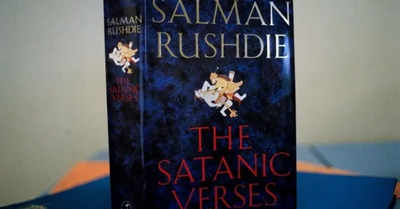
The Delhi high court on Thursday concluded proceedings regarding a petition that challenged the 1988 ban on importing Salman Rushdie's contentious book, 'The Satanic Verses', imposed during Rajiv Gandhi's administration. The court determined that since officials could not produce the relevant notification, it must be considered non-existent, news agency PTI reported. A bench led by Justice Rekha Palli issued an order on November 5, noting that the petition, pending since 2019, had become ineffective.
The court stated that the petitioner would now have legal rights regarding the book. The government's 1988 ban on importing "The Satanic Verses" by the Booker Prize recipient was implemented due to public order concerns, following worldwide protests by Muslims who considered the book sacrilegious. The petitioner, Sandipan Khan, presented to the court that he could not import the book because of a notification issued by the Central Board of Indirect Taxes and Customs on October 5, 1988.
This notification, which banned the book's import under the Customs Act, was unavailable on official platforms and with relevant authorities. The bench, which included Justice Saurabh Banerjee, noted that no respondent could produce the October 5, 1988 notification. Even the supposed issuing authority expressed inability to provide a copy during the petition's pendency since 2019.
The court concluded that without evidence of the notification's existence, they could not evaluate its validity, thus declaring the petition ineffective. The petitioner had also contested other related directives from the Ministry of Home Affairs from 1988 and sought permission to import the book through its publisher or international online retailers. Throughout the court proceedings, authorities consistently maintained that the notification was untraceable and therefore could not be presented.
.














